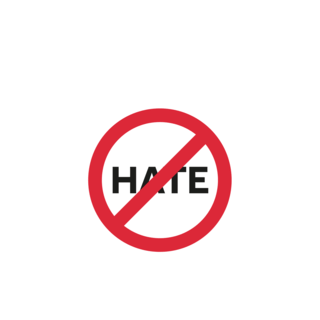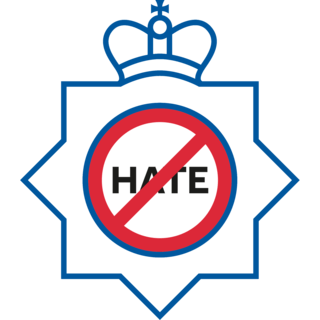What is a religious hate crime?
Religious hate crimes and non-crime incidents are acts which target a victim because of the offender's hostility towards them or a group based on their theological faith, or lack of one.
The law does not protect the teachings of the theology (often referred to a 'tenets'), but it is based in human rights principles, meaning that we all have a right to hold our religious beliefs and to practice our theological faith in safety.
There is no hierarchy of rights and an atheist has the same rights to live free from targeted abuse, as does a believer in a 'majority' or 'minority' religion.
Crimes motivated by inter-faith or intra-faith hostility (sometimes referred to as sectarian) or a crime targeting someone who has left a religion would be investigated and prosecuted as religious hate crimes. They could attract the same enhanced sentencing in court.
So any incident or crime which is perceived by the victim to be motivated by religious hostility will be recorded as such. If the offender is to have a sentence enhanced by the court, then prosecutors must provide evidence to prove that, but such proof is not required for recording purposes.
Hate crimes can be committed against a person or property.
You can see the UK shared definition of 'Monitored Hate Crime' here
How can I report an incident?
Details on how to report an incident and what you can report is available on the 'Report a hate crime' page. You can use a self reporting form or complete the online form on the 'Reporting online' page. You may also be able to report incidents through the organisations listed on this website on the 'Organisations that can help' page.
By reporting it, you may be able to prevent these incidents from happening to someone else.
Reporting makes a difference...to you, your friends, your community and your life.
How will the police and CPS treat religious hate crime?
The Police and other criminal justice agencies consider all hate crime to be very serious, including religious hate crime. When a case is prosecuted, the courts can impose a stronger sentence under powers from Section 66 of the Sentencing Act 2020. This reflects the priority placed on these crimes. The Police have performance targets and measures in place to ensure the service they offer is of the highest standard.
The Crown Prosecution Service (CPS) is the organisation that takes cases through the court system. They have produced guidance on Racist and Religious Hate Crime that is available on the 'Prosecuting hate crimes' page of this website.
Report a religious hate crime >>
Working definition of antisemitism
The UK Government and the police have adopted the 'working Definition' of antisemitism, as agreed by the International Holocaust Remembrance Alliance in 2016. The police record antisemitism to the shared definition of 'Monitored Hate Crime' but believe the working definition provides a useful guide as to how antisemitism may manifest itself in our society.

